Disparity in Democracy: Underrepresentation of Muslims in Indian politics
India's Muslim population ranks third globally, behind Indonesia and Pakistan, with an estimated 220 million adherents. They comprise 14% of India's total population, as the largest religious minority, and their numbers are steadily increasing still now. However, their participation in the Indian legislature has decreased below 5% over the last five decades. Muslim parliamentarians have never surpassed the 10% mark, and their representation has sharply declined over the last 15 years. This disparity in democratic representation, along with the marginalisation of the Muslim community and increasing political polarisation, has grown more pronounced since the Hindu nationalist Bharatiya Janata Party (BJP) came to power in 2014. The BJP fielded 7 Muslim candidates in 2014, but none of them won. In 2019, BJP gave the tickets to only 6 Muslim candidates, again lost all of them and in 2024 general elections, BJP fielded its sole Muslim candidate from Malappuram, Kerala, although winning all three general elections and emerged as the single largest party. Consequently, in the 18th Lok Sabha, only 24 out of 545 MPs are Muslim, with none belonging to the BJP.
From Independence to present today
It is a stark reality that Indian independence emerged alongside the divide between Hindus and Muslims, with the birth of the Muslim League and the rise of Pakistan. Before independence, Muslims actively participated in Indian politics. Leaders like Maulana Azad and Muhammed Ali Jinnah played prominent roles in the Indian National Congress. In the late 19th and early 20th centuries, religious nationalism grew on both sides, culminating in the formation of Pakistan. In the early post-independence period, Muslims had a somewhat stronger presence in parliament. For example, Fakhruddin Ali Ahmed served as president from 1974 to 1977. Anyhow, the real decline, or perhaps, the actual marginalisation of the Muslim population, arguably began in the 1990s which coincided with the rise of the Hindutva ideology championed by the Bharatiya Janata Party (BJP). The BJP entered Indian politics with agendas that some associate with communal riots, violence, deepening the Hindu-Muslim divide, and events like the Babri Masjid demolition. The number of Muslim MPs in the Lok Sabha reflects this trend. From 49 in 1980, the number steadily declined to 25 in 1991 (before the BJP became the dominant party). While the numbers increased again to 32 and 35 under Atal Bihari Vajpayee’s rule in 1999 and 2004 under UPA government respectively, they fell back to 30 in 2009.
This decline becomes even more striking when contrasted with the rising Muslim population in India. In 1980, Muslim MPs comprised 9% of the Lok Sabha, while Muslims formed only 11% of the population. Nevertheless, by 2014, despite Muslims reaching 14% of the population, their representation in the Lok Sabha had shrunk to a mere 4%. Therefore, this disparity is precisely gaining significant attention after the 2024 elections. While the shrinking number of Muslim MPs isn't a recent phenomenon, the results since 2014 and the overall trend are unprecedented. The 16th Lok Sabha witnessed a drop from 30 to just 23 Muslim MPs. Similarly, in 2019, only 26 out of 115 Muslim candidates fielded by various parties secured seats. This trend continued in the latest 18th Lok Sabha, where only 24 out of 78 Muslim candidates fielded by secular parties won elections.
In terms of different Indian states, in 2009 Maharashtra had no Muslim MPs; by 2014, it was Uttar Pradesh's turn. This shift was particularly noteworthy not only because UP has 80 seats but also because in 32 constituencies where Muslims constitute over 15% of the voters, the BJP won all except two seats, which were taken by the Samajwadi Party. However, this trend has shown signs of change in the 2024 elections, which bodes well for regional parties and the Muslim community. In Uttar Pradesh, the Samajwadi Party managed to secure 37 seats, becoming the third-largest party after the BJP and INC. Among them, 4 MPs are Muslim. Additionally, Congress, TMC, IUML, National Conference, and AIMIM have secured 9, 5, 3, 2, and 1 seat(s) respectively, with two seats going to independent MPs.
Polarisation and Party Dynamics
Since coming into power, the BJP has significantly influenced India's political landscape, marked by profound divisions between opposing viewpoints that contribute to the underrepresentation of Muslims. The BJP and its parent organisation primarily advocate Hindu nationalism, emphasising a singular Hindu identity for India. This ideology tends to marginalise religious minorities, particularly Muslims, making them feel threatened and unwelcome in their own country, especially within the political sphere.
The actions of the BJP government against Muslims have been widely observed and experienced, like house demolitions, discrimination across various aspects of life, physical attacks, and challenges to their religious identities. Furthermore, the 2024 elections highlighted how BJP leaders, including the Prime Minister, openly targeted Muslims in their campaign rhetoric. Statements explicitly stating that they do not need Muslim votes and urging voters to choose BJP to "protect the nation from those who have a large number of children" have intensified polarisation and further marginalised Muslims.
This election outcome underscored the BJP's stance, declaring itself a "Muslims-free Hindu nationalist party" by not allocating any seats to Muslims. This stark reality and the associated perceptions have undoubtedly discouraged Muslims from engaging with the BJP, as it becomes increasingly clear that the party prioritises particular religious affiliations over inclusive governance.
When it comes to secular parties in India such as Congress, Samajwadi Party, TMC, AAP, NCP, and various regional parties across states, it appears that these parties only seek the votes of the Muslim community without adequately representing them in legislative bodies, as observed historically. Muslims across the nation often vote for secular parties with the hope that their rights will be advocated for and their voices heard.
For instance, in the recent election, Muslims predominantly supported the INDI alliance, which saw a significant increase in Muslim votes—from 52% in 2019 to 76% in 2024. According to India Today, three out of every four Muslims voted for the Congress-led alliance. Even so, despite numerous cases of mob lynching targeting Muslims, many secular parties have remained silent in parliament, and when they do speak out, they often avoid explicitly mentioning "Muslims". This raises the question: why do these secular parties hesitate to openly advocate for Muslims?
Representative Democracy for All
The cornerstone of democracy lies in its ability to embrace all and exclude none. India, as the world's largest democracy, harbours diverse communities and religions, each with substantial populations and unique identities and every citizen has equal opportunities to contest elections and participate in the Indian Parliament.
It is imperative that all communities should be adequately represented in electoral politics to ensure inclusivity, where every voice is not only heard but also acted upon. The politics and representation of Muslims go beyond mere numbers of MPs and MLAs or the voting patterns of Muslim voters. Issues significant to Muslims such as education, discrimination, and religious freedoms must be addressed, with their concerns should be considered in the political sphere. Muslim political engagement should be viewed as an evolving independent discourse, not solely reactionary to challenges posed by Hindutva politics. Thus, fostering this inclusive approach will contribute to the emergence of a New India.
References
- Christophe Jaffrelot and Gilles Verniers, Invisible in the House, Indian Express, May, 2014.
- Anjishnu Das, Muslim representation in new Lok Sabha: 24 MPs, none from BJP-led NDA, The Indian Express, July, 2024
- Hanan Zaffar, Why are Muslims underrepresented in Indian Politics?, Fair Planet, April, 2024.
- Hilal Ahmed, Rethinking Muslim Political Representation in India, CASI, University of Pennsylvania, December, 2022.
- Adnan Farooqi, Political representation of a minority: Muslim representation in contemporary India, Routledge, 2020.
- Abdur Rahman, Absent in Politics and Power: Political Exclusion of Indian Muslims (Book), Manohar Publishers and Distributors, January, 2023.
- Zoya Hasan, Politics of Inclusion: Castes, Minorities and Affirmative Action (Book), Oxford India, 2011
Endnotes
- PRS, Legislative Research, Muslim representation in Lok Sabha.
- India.gov.in, national portal of India, MPs by religion.
- Centre for Policy Research, All India Muslim Majlis-e-Mushawarat.
- Institute of Peace and Conflict Studies, IPCS.
- CSDS-Lokniti, 2024, Muslim Representation.
- Pew Research Center, Religious Population.
About The Author:
Uzair Ahmed, PG Research Scholar in the Department of Civilizational studies at Darul Huda Islamic University.
Disclaimer
The views expressed in this article are the author’s own and do not necessarily mirror Islamonweb’s editorial stance.

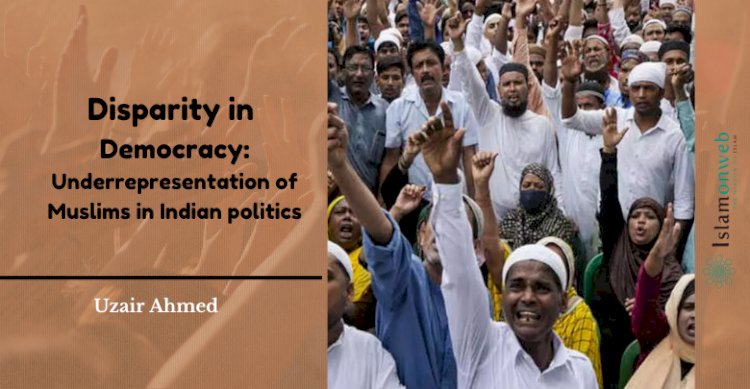


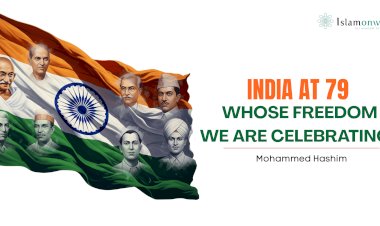
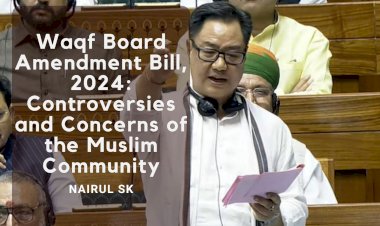

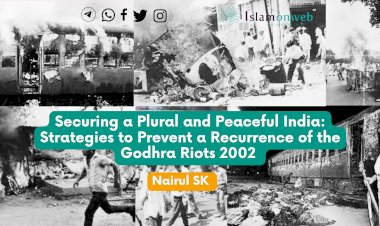
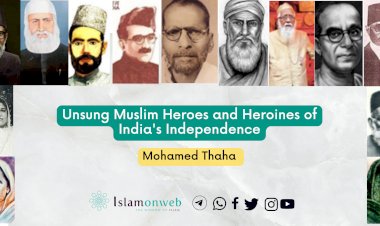
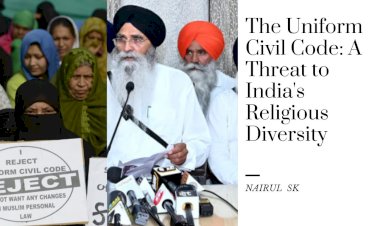














Leave A Comment